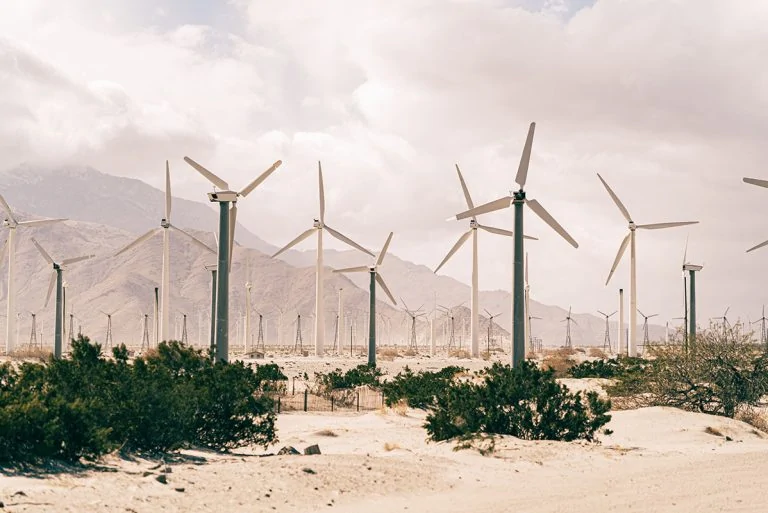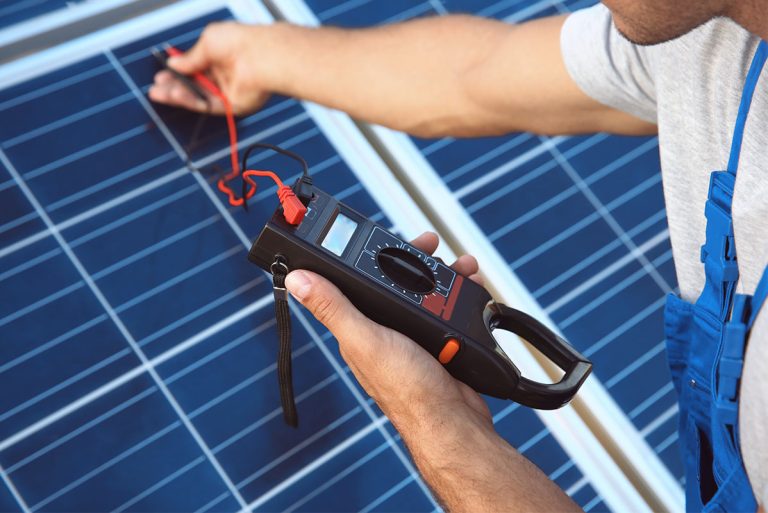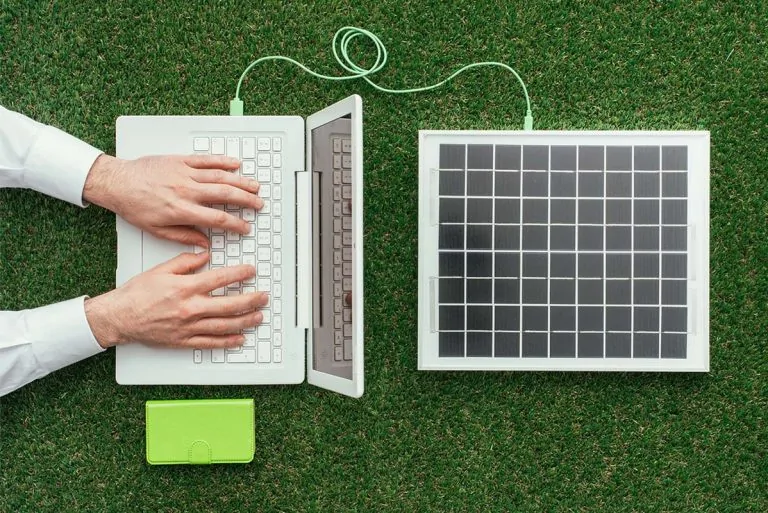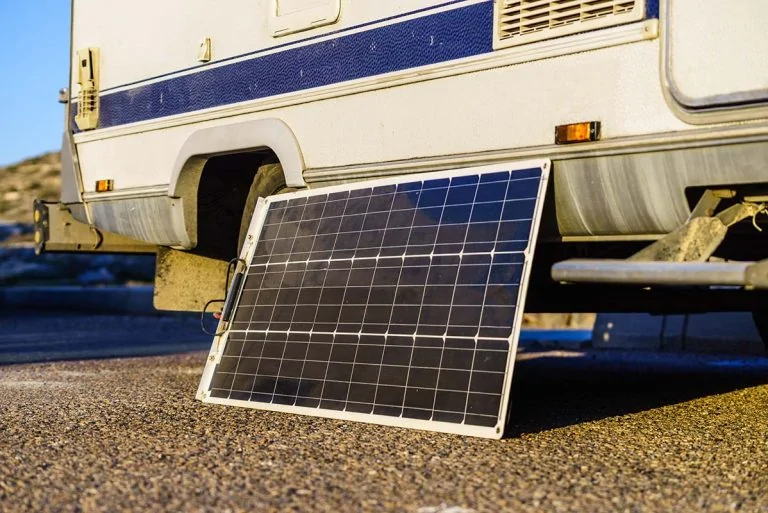The global uncertainty over the availability and cost of essential energy resources has had many homeowners thinking carefully about the steps they can take to become self-sufficient.
The installation of solar panels is one of the more popular strategies for reducing dependence on the grid, with 6% of US homeowners owning solar panels and a further 49% giving solar panel installation serious thought.
Adding solar panels to make the most of long hot summers and savings on sky-high AC bills makes a lot of sense. But home solar panels are incredibly expensive, even with generous state and federal tax incentives.
Owning solar panels is a big investment, but is leasing any cheaper in the long run?
To help you make the right decisions we have produced this guide on leasing vs buying solar panels. Our guide to leasing vs buying solar panels should help you evaluate the pros and cons – of leasing or buying solar panels on your property and includes the key differences between buying and leasing solar panels.
So set aside a few moments to read this informative guide which should equip you with the information you need to decide whether buying or leasing solar panels is the right option for you.
Leasing vs buying solar panels – what’s the difference?
The key difference between buying and leasing your solar panels comes down to one word: ownership.
Both options are going to cut down your electricity bills but only one lets you own the panels. With a purchased solar panel installation you are the outright owner of the system, whereas leased solar panels are installed on your property, but owned by the company that installed them.
Let’s take a closer look at the features of these two arrangements.
Leasing solar panels
Taking out a solar lease is a common option for property owners who want to install solar panels but do not have the $20,000 up front to purchase a system outright. Solar panel system prices have dropped by at least 70% in the last decade but they are still pricey. By leasing, you pay a solar company a low monthly fee while enjoying the low bills that come with solar panels.

For solar leases, you deal with the solar company to set up your solar panel system, while a separate financing company administrates the lease on their behalf. You handle the monthly payments regardless of the amount of energy the panels actually generate.
The solar company owns and is responsible for the maintenance of the system.
With leasing, you still get all the benefits of the electricity generated on your property. If you produce more electricity than your property needs, the panels send the excess power to the grid, earning you metering benefits that drive down your bills even further. But you’ll still pay for the energy you use when solar production is low.
Buying solar panels
If you want to fully own your solar power system, buy it. There are several ways in which you can have your ideal solar panel system, complete with panels installed in your home:
- Purchase a turnkey solution that includes both the solar panels and their wiring into your home’s electricity supply with the necessary metering and controls. Pay for the panels and installation in whole, upfront.
- Purchase a turnkey solution that includes both the solar panels and their wiring into your home’s electricity supply with the necessary metering and controls. Pay for the panels and installation in installments using a loan or hire-purchase arrangement (HPA).
- Purchase solar panels and hire a contractor to install them on your property.
- Buy solar panels and install them yourself with the help of a local electrician.

Most homeowners value the expertise of a solar installer who can source and install suitable solar panels for the property. If you cannot pay in full for the solar panels, the company works with partner companies that arrange the financing for the panels.
This arrangement is known in the industry as a solar loan and involves monthly payments for a fixed term.
Owning solar panels comes with maintenance responsibilities that leaseholders do not have. However, the energy that is generated and all the long-term savings are 100% yours.
Pros and cons of leasing vs buying solar panels
Now you understand the difference between buying and leasing solar panels for your home, it’s important to know the implications of each option. There are important pros and cons for leasing (and for buying) that will affect your return on the investment of installing your solar panels.
Here’s what you need to know:
Pros of leasing your solar panels
There are plenty of advantages of leasing vs buying solar panels. Let’s take at some of the pros, to help determine if the positives potentially outweigh the negatives.
1. Almost zero upfront cost
If you cannot pay the upfront cost of solar panels but need some relief from sky-high power bills, solar panel system contracts can provide lease arrangements that provide turnkey installations of panels with almost no immediate costs. Simply keep up with your monthly repayments for the duration of the lease.
2. Maintenance-free solar panels
A big benefit of leasing solar panels is that you escape the responsibility and cost of maintenance and upkeep for them. This aspect of the leasing arrangement is reassuring, because you’ll always know that the solar company will handle any problems.

Cons of leasing solar panels
Along with positives, there are also downsides to leasing vs buying solar panels. Some of these are well known negatives, and you have to be careful to make sure you don’t get stung:
1. You don’t own the solar panels
The bottom line is that with leased solar panels, you don’t own the panels, meaning you’ll miss out on some pretty important benefits of owning them, such as increasing your property value. The savings you’ll enjoy would be better with ownership as they aren’t offset by monthly installments.
2. Monthly bills
After all the effort to reduce monthly bills by generating solar power, with leasing, you get an additional bill. But for most solar panel lease arrangements you are switching a larger energy bill for a smaller electricity bill and your lease payment.
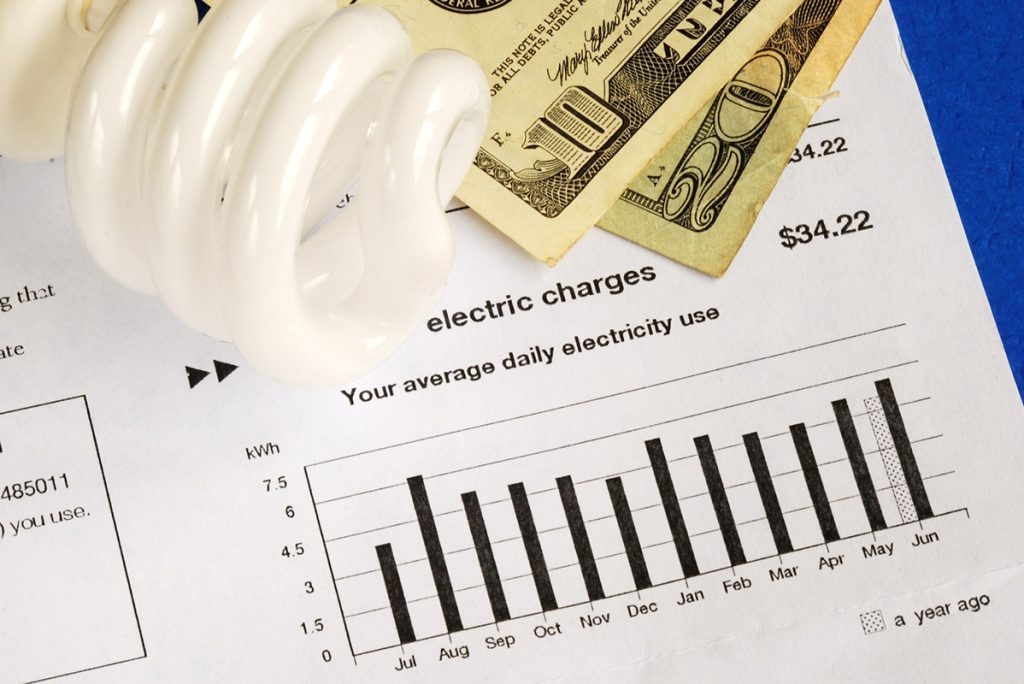
Solar lease payments can be a bit of a headache because they often increase year-on-year because the lease payment is pegged to any predicted price rises in electricity. Another issue is that if you generate little solar energy with your leased solar panels, you will still pay for power from the grid while paying a fixed lease payment.
3. Missing out on incentives and tax breaks
When you lease solar panels, you don’t own the system you’ve had installed, making you ineligible for a variety of state and federal rebates and incentives for solar panels.
These incentives are paid to the lease company instead. This is an important reason to consider buying as incentives often make buying solar panels great value for money, as we explain further on.
4. Introducing difficulties in selling your home
Once leased solar panels are on your home, you have someone else’s property and that can complicate things if you want to sell your home. The lease contract may mean that the panels have to remain in place for a certain period, or you may have to transfer the lease to a new owner.
If you cannot transfer the panels, you face significant costs to break the lease. Some companies may provide the option of buying back the solar panels which could increase the value of your home but without this option you’re stuck!

Pros of buying your solar panels
If you have the cash, owning your solar panels is a great investment in your property. Here are the need-to-know benefits:
You own your solar panels
This means that the panels, electronic hardware and the energy that is generated is 100% yours! Even if you pay by installments, you will have no further bills once the payment term is finished, leading to substantial long-term savings on energy costs.
You are eligible for SRECs
Did you know you can generate a decent income from your solar panels with solar renewable energy certificates (SRECs)? Most state offer SRECs, a financial instrument that pays you money for each MWh of electricity your panels generate for the grid. The exact amount you earn varies by state but SRECs are only available to solar panel owners.
You are eligible for federal tax credit
People who lease their solar panels are missing out on a variety of federal and state incentives for generating renewable energy. Federal tax credits are a great reason to own because they can save you up to 30% of the cost of purchasing and installing your solar panel. If you lease, the solar company gets national incentives and tax credits your property earns.
Increase in house value
Solar panels provide an appreciable uplift in the value of your property, as much as 5%. This is not only because the property now has its own renewable energy source but also because of the SRECs it earns.
This will make your property highly desirable to prospective buyers as your property generates energy as well as income.

Cons of buying solar panels
While there are plenty of reasons to buy and own solar panels, it also has its disadvantages too. The main downsides of ownership are:
The cost
If you want to own your solar panels, you’re going to have to pay out a large sum. The Solar Industries Association (SEIA) reports that the average residential solar panel system costs almost $3 per watt. This means you be paying at least $11,000 for a 5 kW system. The average homeowner needs to be prepared to spend up to $20,000 to own their own solar panels.
Maintenance responsibilities
Once you own your solar panels, you are 100% responsible for the condition and maintenance, especially if you have cleared a warranty period. Leaseholders don’t have the stress and expense of dealing with damage or breakdowns as solar panel companies include it in their monthly fee. Remember to keep the panels clean so they can capture sunlight efficiently.
Potential for disappointing performance
Nothing could be worse than paying out a capital sum for your solar panels and finding that they don’t generate the amount of electricity you expect. This is a real risk for any solar panel installation.
Many homeowners hire the services of professional solar trackers who plot the course of the sun over the property for a period to calculate the best orientation of solar panels.
Solar panels stay with the property
Solar panels are often purchased for a ‘forever’ home simply because owners invest in them for a lifetime of benefit and do not intend to move. Though you could technically remove the panels and hardware from your property if you move home, the solar panels will have been specifically fabricated, oriented, and installed for the property and may not be as effective elsewhere.
Leasing vs buying solar panels – so which is better?
The decision to opt on leasing vs buying solar panels really depends on your personal circumstances and your finances in particular. Here are some considerations that can help you decide if leasing or ownership is going to be better for you:
Your age
If you are older and approaching retirement, leasing may make great sense.
Rather than spending a lump sum from your savings or a future inheritance on outright ownership, you can pay a monthly fee out of your pension while reducing your utility bill. You also don’t have the stress or hassle of maintenance.

Young families should definitely buy. If you are still under forty, purchasing solar panels is one of the top two best investments you can make, right alongside buying your own house. And that investment gets even better if you live in a region where you get credit for the extra energy you create. You have the time to enjoy long-term savings and pay off a loan for the purchase.
There are also ways to go solar without upfront costs. Check our guide to free solar panels to learn more about the options.
Your cash flow
If you are asset-poor but cash-rich, you may find it convenient to get the benefits of solar panels for a regular monthly fee. Leasing solar panels can free you up from the details and you don’t have the worry of wondering if the panels are working optimally.
However, if the opposite is true and you have low cash flow, home solar panels that produce a lot of energy could create a meaningful income. You can also take advantage of the heavy subsidies and tax breaks that come with adding solar panels to your home.
Your lifestyle
If you don’t have time for managing your panels, just lease them. Leasing frees you up from tracking the efficiency of your panels. The company you rent them from will do that, using sophisticated technology that might not be available to you if you buy.

Also, if you lease your panels, you don’t have to worry about carrying insurance on them or fixing and maintaining your panels. That, too, will be the responsibility of the provider.
Your family
If you want to install solar panels, the opinions of your spouse or partner and family are important. Solar panels are a big purchase and if your spouse doesn’t want the financial commitment of a purchase, then leasing solar panels may well be a suitable compromise.
Your business
The benefits of buying a solar array big enough to power your business are nearly endless. If you are powering a big warehouse space, you will not just save hundreds of dollars a year, but potentially tens of thousands by installing solar, just in energy costs.

Then, there are also tax depreciation considerations. Depending on where your business is located, you can defray the cost of solar installation against your profit. Some districts will let you depreciate your solar panels over just one year, which is a huge boon to businesses that make a lot of money their first year.
Alternatively, you can depreciate your panels over five or ten years. That way, you spread out your tax advantage over a longer span of your business’s life.
Wrapping up
As you can see, there are sound reasons for buying and leasing solar panels. Leasing solar panels has made solar energy available to more people than ever. And while buying is still the better long-term investment, leasing solar panels is a good alternative to buying for many people and in many circumstances.
Ownership, however, delivers a tangible return on investment and energy resilience in the face of rising costs. Owning solar panels is the aspiration of anyone who want to live off grid and right now, has some great financial incentives.
If you want solar panels, go for it! Whether you lease or buy, solar panels are a good overall idea.




